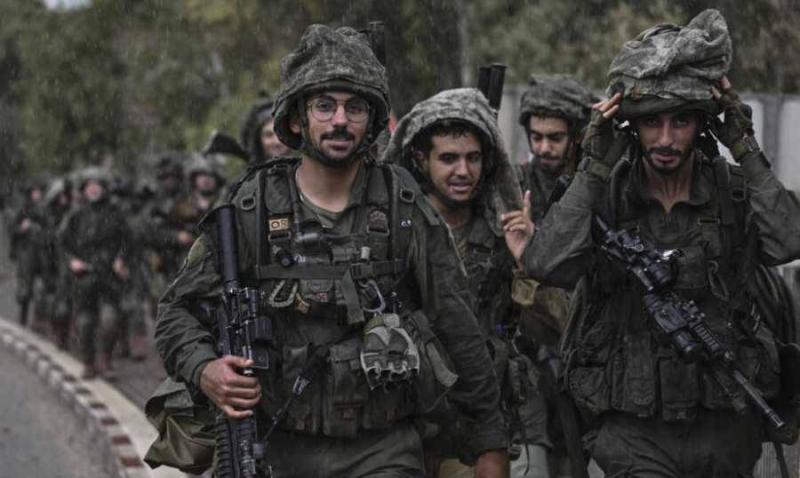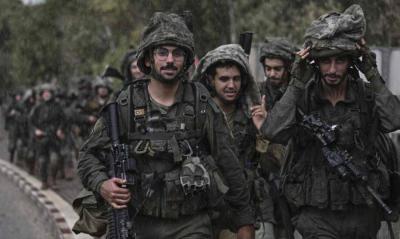In a shocking move regarding "ceasefire efforts," Israeli Prime Minister Benjamin Netanyahu approved plans for a military operation in Rafah, southern Gaza Strip, on Friday. At the same time, he authorized sending a delegation to Qatar to continue discussions on a prisoner exchange deal and a ceasefire in Gaza, with mediators working to halt fighting for six weeks and to exchange hostages and prisoners. The contradiction between these two actions has led many to question whether the plans for invading Rafah are serious or merely a maneuver to pressure Hamas in the upcoming negotiations.
The announcement of the approval for the Rafah incursion came after the United States, the European Union, and several countries globally expressed their opposition to such an incursion without effective plans for evacuating Palestinian civilians. The Israeli Prime Minister's office stated: "Prime Minister Netanyahu has approved plans for a military operation in Rafah. The Israeli army is operationally prepared for it and to evacuate the residents." It added: "As for the captives, Hamas's demands remain fictional, and an Israeli mission will head to Doha after the security cabinet discusses the Israeli position."
Israeli military analyst Amos Harel mentioned in the Israeli newspaper "Haaretz" on Friday that Netanyahu's repeated threat of an operation in Rafah serves two purposes. The first announced goal is to push forward a hostage deal. He explained that "if Egypt, the U.S., and the Palestinians fear an Israeli army attack on Rafah, there may be a chance for flexibility to reach an agreement." He continued, "However, at the same time, Netanyahu is buying time in this manner. The endless occupation, along with the potential for invading Rafah, pushes the end of the war further away and diverts public and political discourse from investigating the failures that led to the attack carried out by Hamas on October 7."
Harel pointed out that "fighting in Gaza on the ground is in a sort of waiting state. The main battle is currently in the central sector in the Hamad neighborhood, northwest of Khan Yunis, which the Israeli army entered about two weeks ago." He added, "Concurrently, Israeli planes are conducting limited airstrikes on northern Gaza. In these operations, hundreds of Hamas militants have been killed, and this week was no exception." However, he noted: "At this moment, none of this seems to significantly affect the will of Hamas to continue fighting, even within small military frameworks."
Moreover, the difficulty of evacuating civilians suggests that the talk of an imminent invasion of Rafah may simply be a pressure maneuver, as evacuating civilians would take several weeks, according to the same source. Harel stated: "It is not certain that there is a real way to strike Hamas in Rafah without occupying the city. In any case, contrary to official Israeli statements, it seems that the Israeli army does not yet have the capacity for immediate action in Rafah." He continued, "Many weeks will be needed to evacuate the residents. The Israeli army will also need to allocate significant forces for this task. These forces will come from regular army units that are not yet deployed in the south of the strip and from reserve forces that most of their members have been discharged."
Harel added, "The main military achievement that has been made recently remains in doubt, specifically the assassination of Marwan Issa, the number three figure in Hamas's hierarchy in Gaza, who was apparently killed in an airstrike by the Israeli forces in the Nuseirat refugee camp in Gaza." He clarified, "Defense Minister Yoav Galant attempted to initiate a step that would allow the Palestinian Authority or members of Fatah from Gaza to receive aid in the north, as Hamas's control remains relatively weak there. However, Netanyahu undermines that."
The Israeli analyst also talked about the negotiations, stating, "Negotiations regarding the hostage deal did not make significant progress this week, but the issue has not completely reached a dead end." He added, "The United States has failed to achieve the target date of March 11, the beginning of Ramadan, which it blames on Hamas's stubbornness. It is also possible that increasing aid serves Hamas by alleviating the pressure from Gaza's residents to reach a settlement that could stop the fighting."
On its part, the Palestinian presidency warned of the Israeli government's decision to carry out a military operation in Rafah, which could "commit another massacre and continue the crimes of displacement against our people." It demanded the U.S. administration and the international community intervene quickly and "bear their responsibilities to prevent such a serious aggression, which exacerbates the suffering of our people in Gaza."
The presidency reiterated its firm rejection of any displacement, considering it a "red line." It emphasized the "need to stop the aggression, withdraw the occupying army from the Gaza Strip, and obligate Israel to implement international law resolutions."




